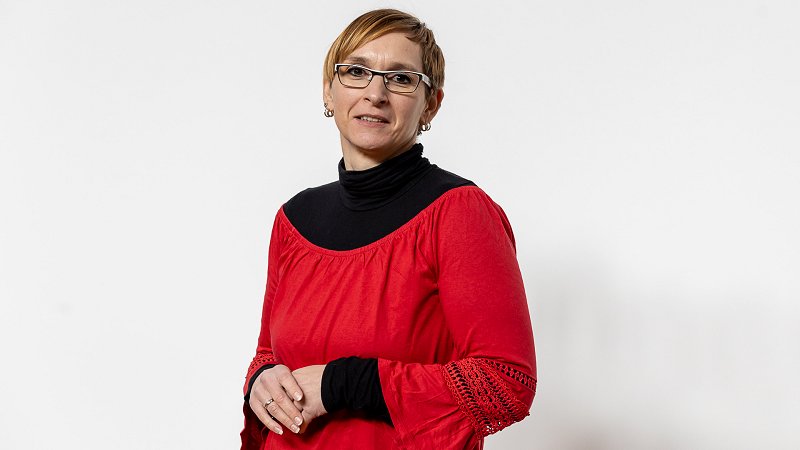Assist. Prof. Dr Sabina Markelj
 Senior Research AssociateE-mail: Tel: +38615885265
Senior Research AssociateE-mail: Tel: +38615885265 Experimental Atomic Physics and Thermonuclear Fusion – Plasma–Material Interaction
My primary research focuses on the interaction of hydrogen isotopes with materials, a key challenge in the development of thermonuclear fusion as a sustainable energy source. The research combines advanced experimental techniques and ion-beam-based diagnostics to understand fundamental processes at the atomic scale. Due to the many hydrogen related strategically important applications for the development of mankind (fusion, hydrogen fuel cells, plasma treatment, etc.) this field is very lively and competitive. In order to be able to create paths for new discoveries and knowledge, I took an innovative approach in my research path, especially in the development of new techniques and the use of different measuring tools. My main tools are ion beam methods (hydrogen isotope depth profiling in materials) and spectroscopy of vibrationally excited hydrogen molecules (the method is based on dissociative electron capture into hydrogen molecules). Since 2012, I have focused on the studies of retention and transport of hydrogen isotopes in materials containing defects in the crystal lattice, trying to reproduce the irradiation damage that will result from neutron irradiation in fusion reactors. The specialty of my research is that I monitor processes on and below the surface in situ and in real time.
Main research areas include:
- Investigating the interaction of hydrogen isotopes with both the surface and bulk of materials.
- Studying hydrogen retention and transport in tungsten and other fusion relevant materials with displacement-damaged crystal lattices, relevant for fusion reactor environments.
- Creation of displacement damage (defects) in the crystal lattice of fusion relevant materials using heavy high energetic ion beams, to reproduce the irradiation damage that will result from neutron irradiation in fusion reactors.
- Depth profiling of hydrogen isotopes in real time using ion beam analytical methods, with emphasis on tracking processes occurring simultaneously at the surface and within the bulk of materials.
- Development and application of ion beam techniques for materials characterization and defect analysis.
- Spectroscopic studies of vibrationally excited hydrogen molecules, employing dissociative electron attachment of electrons to molecular hydrogen.
Teaching activities
- Habitation at Faculty for Mathematics and Physics, University Ljubljana and at Jožef Stefan International Postgraduate School
- 2021 – Set of lectures "Fundamentals of Nuclear Materials - Crystals and Damage Creation" in the course "Materials in Nuclear Engineering" at the 2nd level of Physics at the Faculty of Mathematics and Physics (FMF), University of Ljubljana (UL).
- 2018 - Course lecturer at the Jožef Stefan International Postgraduate School (MPS) entitled: Hydrogen detection in materials and in gas phase.
- 2017 – 2019, 2024 – Assistant – Physics Practical courses, FMF, UL, Slovenia